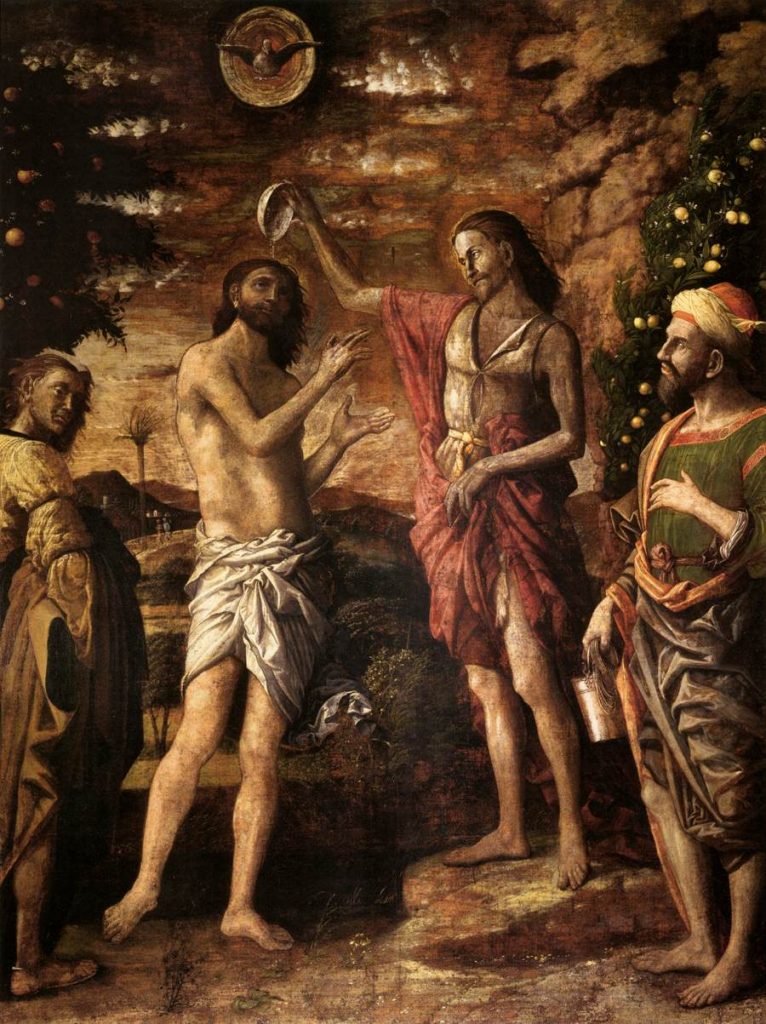Is. 42:1–4, 6–7 / Ps. 29:1–4, 9–10 / Acts 10:34–38 / Mk. 1:7–11
The liturgy last week revealed the mystery of God’s plan — that in Jesus all peoples, symbolized by the Magi, have been made “co-heirs” to the blessings promised Israel. This week, we’re shown how we claim our inheritance.
Jesus doesn’t submit to John’s baptism as a sinner in need of purification.
He humbles himself to pass through Jordan’s waters in order to lead a new “exodus” — opening up the promised land of heaven so that all peoples can hear the words pronounced over Jesus today, words once reserved only for Israel and its king: that each of us is a beloved son or daughter of God (see Genesis 22:2; Exodus 4:22; Psalm 2:7).
Jesus is the chosen servant Isaiah prophesies in Sunday’s First Reading, anointed with the Spirit to make things right and just on earth. God puts His Spirit upon Jesus to make him “a covenant of the people,” the liberator of the captives, the light to the nations.
Jesus, Sunday’s Second Reading tells us, is the One long expected in Israel, “anointed … with the Holy Spirit and power.”
The word Messiah means “one anointed” with God’s Spirit. King David was “the anointed of the God of Jacob” (see 2 Samuel 23:1–17; Psalm 18:51; 132:10, 17).
The prophets taught Israel to await a royal offshoot of David, upon whom the Spirit would rest (see Isaiah 11:1–2; Daniel 9:25).
God confirms with his own voice what the angel earlier told Mary — Jesus is the Son of the Most High, come to claim the throne of David forever (see Luke 1:32–33).
In the baptism that he brings, the voice of God will hover over the waters as fiery flame, as we sing in Sunday’s Psalm. He has sanctified the waters, made them a passageway to healing and freedom — a fountain of new birth and everlasting life.

